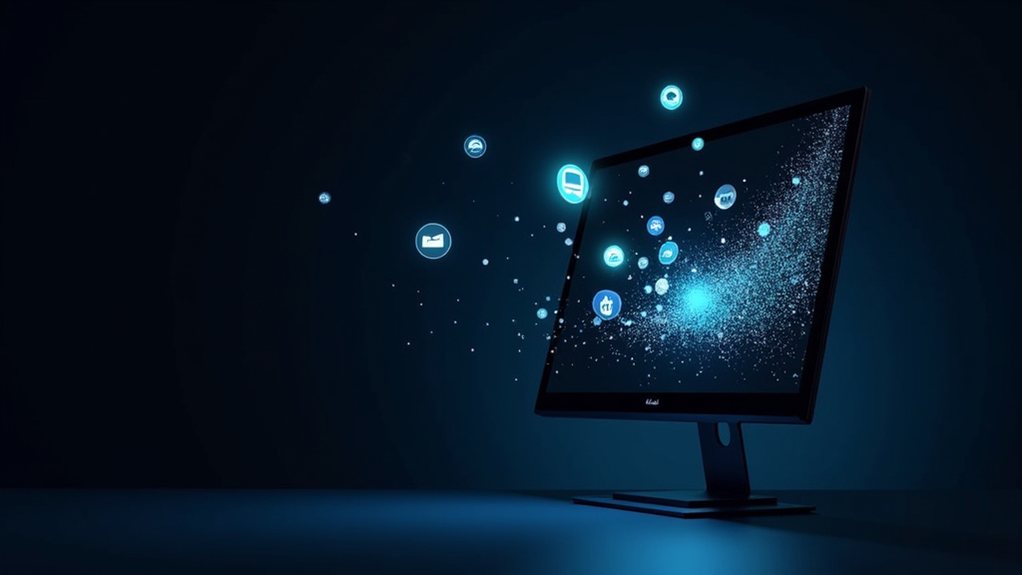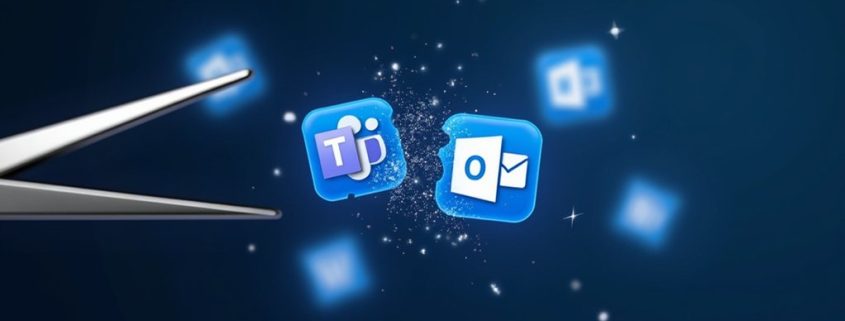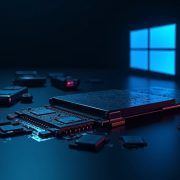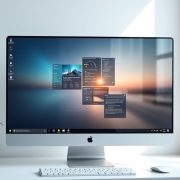Finally Cutting Windows 11 Bloatware Hits Copilot, Outlook, and Teams Hard
Microsoft is finally giving Windows 11 users what they’ve wanted – the power to remove previously permanent system apps. The upcoming version 25H2 update will let users uninstall Copilot, Teams, and Outlook through Group Policy settings, marking a dramatic shift in Microsoft’s approach to pre-installed software. This long-awaited decluttering option promises faster boot times and improved system performance, with the full feature set rolling out in late 2025. The battle against bloatware is about to get interesting.

Taming Windows 11’s bloatware jungle has become a critical skill for users seeking peak system performance. Microsoft’s latest operating system ships with an array of pre-installed applications that can turn even powerful machines into digital sluggards.
Now, in a surprising move, Microsoft’s upcoming Windows 11 version 25H2 is taking aim at some of its most prominent built-in apps, including Copilot, Outlook, and Teams. According to Windows Insiders testing the new feature, users can access removal options through Group Policy settings.
Microsoft’s bold step to trim its core apps signals a refreshing commitment to user choice in Windows 11’s next major update.
The new native debloating feature, slated for release in late 2025, represents a significant shift in Microsoft’s approach to pre-installed software. Like a digital Marie Kondo, users will finally have the power to spark joy by choosing which Microsoft Store packages stay or go, either during installation or afterwards through Group Policy Editor settings.
This development couldn’t come at a better time. Current Windows 11 systems often resemble a crowded app party where everyone showed up uninvited – from Spotify to Solitaire, and from Phone Link to various trial applications that seem to multiply faster than browser tabs. Users often find themselves bombarded with aggressive subscription prompts from these pre-installed apps.
These unwanted guests don’t just take up valuable disk space; they’re like digital vampires, quietly draining system resources and potentially compromising privacy through background data collection.
Until the official release of version 25H2, users aren’t completely helpless against the bloatware invasion. The traditional Settings app and Microsoft Store provide basic uninstallation options, while PowerShell commands offer more aggressive removal capabilities for the tech-savvy.
Third-party tools like TidyOS and Chris Titus Tech utility have stepped in to fill the gap, providing one-click solutions for mass app removal.
The benefits of decluttering Windows 11 extend beyond just freeing up storage space. Think of it as digital spring cleaning – removing unnecessary apps can lead to faster boot times, improved system responsiveness, and a cleaner, more focused user interface.
It’s like removing speed bumps from a highway; suddenly, everything moves more smoothly.
Perhaps most notably, this new feature signals a potential shift in Microsoft’s philosophy toward user choice and system customisation.
Nevertheless, users should remain vigilant about preventing bloatware from creeping back in through system updates or software installations. Simple preventive measures, like disabling Start Menu recommendations and avoiding software bundles, can help maintain a lean system.
As Windows 11 continues to evolve, this native debloating capability could represent a turning point in the eternal struggle between user preference and pre-installed software.
For now, whether through built-in tools or third-party solutions, users have more options than ever to craft their ideal Windows experience – one uninstall at a time.
Final Thoughts
Microsoft is taking a bold step in streamlining Windows 11 by removing pre-installed apps like Teams and Copilot, reflecting a significant shift towards user choice and addressing long-standing bloatware complaints. This initiative aims to enhance system performance and provide a cleaner, more customizable experience for users. As Windows continues to evolve, it remains to be seen whether this leads to a truly bloatware-free ecosystem.
If you’re looking to optimize your Windows experience further or need assistance with any PC issues, PC Repairs Ipswich is here to help. Don’t hesitate to reach out for expert support. Click on our contact us page to get in touch today!











